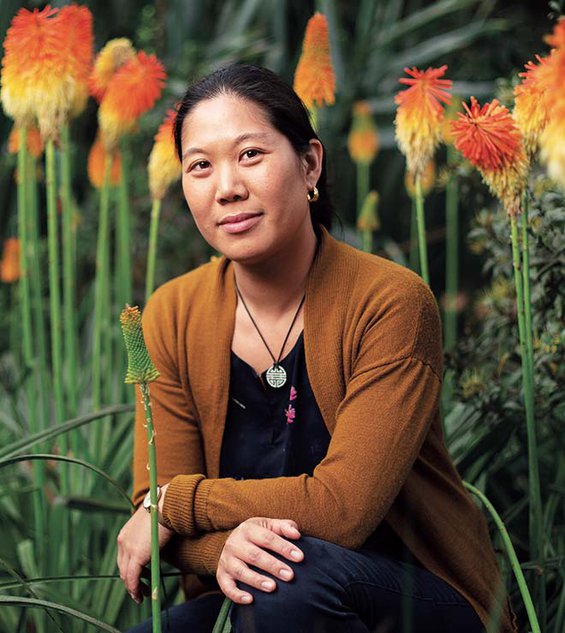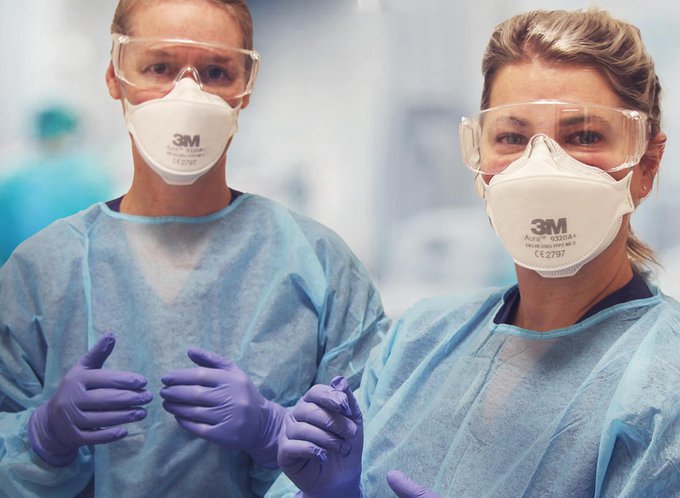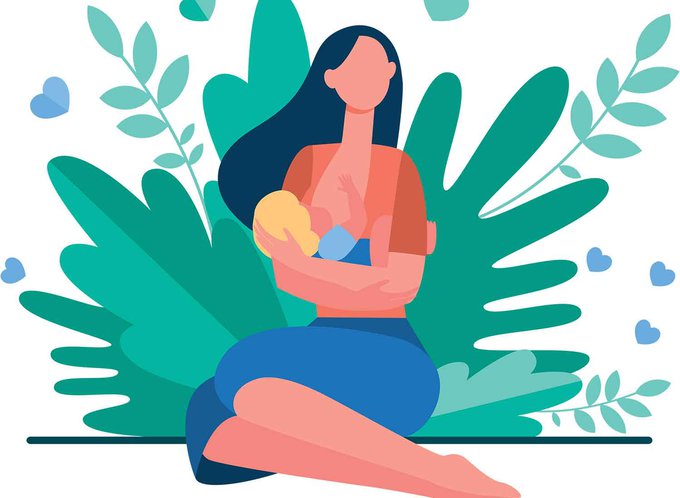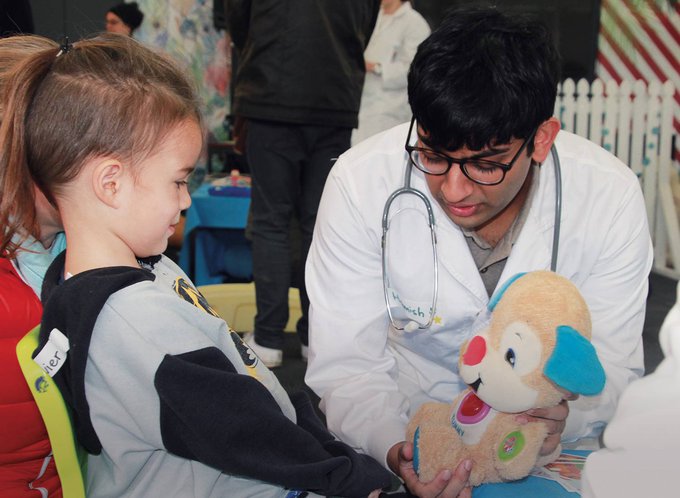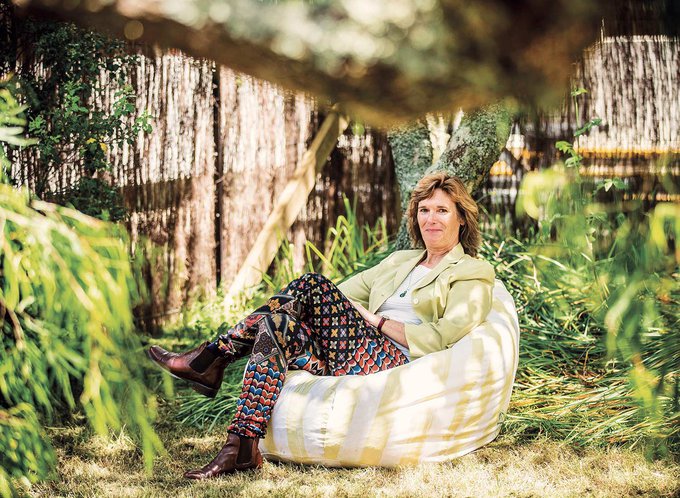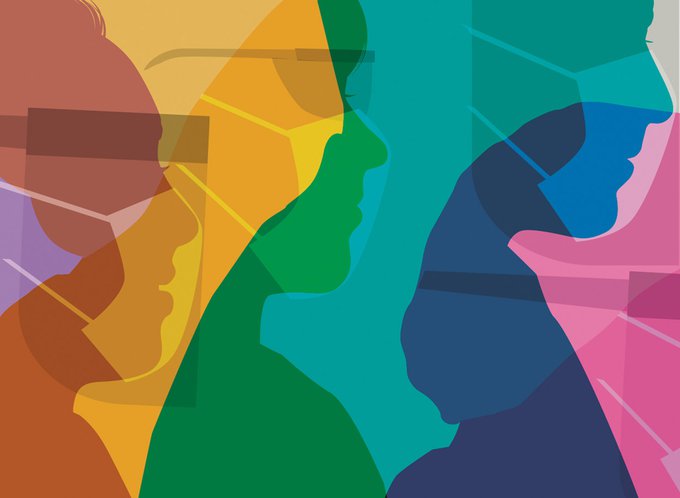One of Aotearoa New Zealand’s leading COVID-19 response experts Dr Jin Russell explains why she’s so passionate about helping the children of Aotearoa.
Dr Jin Russell is busy. The kind of busy you get when you balance three jobs and two children under seven and are on speed dial for Aotearoa’s journalists.
Auckland-based MAS Member Jin spends two days a week as consultant developmental paediatrician at Starship Children’s Hospital, two days writing her PhD in paediatric epidemiology and another working as a community paediatrician.
Since the global pandemic, the 39-year-old has been the media’s go-to for expert comment on topics such as children’s vaccination, the importance of wearing masks and how to keep schools open as safely as possible. Figures from the New Zealand Science Media Centre show that, by the end of 2021, Jin was mentioned in the mainstream media almost 300 times.
It’s a schedule that would see most of us want to lie down in a darkened room for a week. Not Jin, who thrives on being busy.
“I have a lot of energy,” she says. “Throughout my career, I’ve tried to do things I find interesting and that give me energy.”
Jin lives in Balmoral with her husband Matheson Russell, a senior lecturer in philosophy at the University of Auckland, and their two children, seven-year-old Chester and Toby who is four.
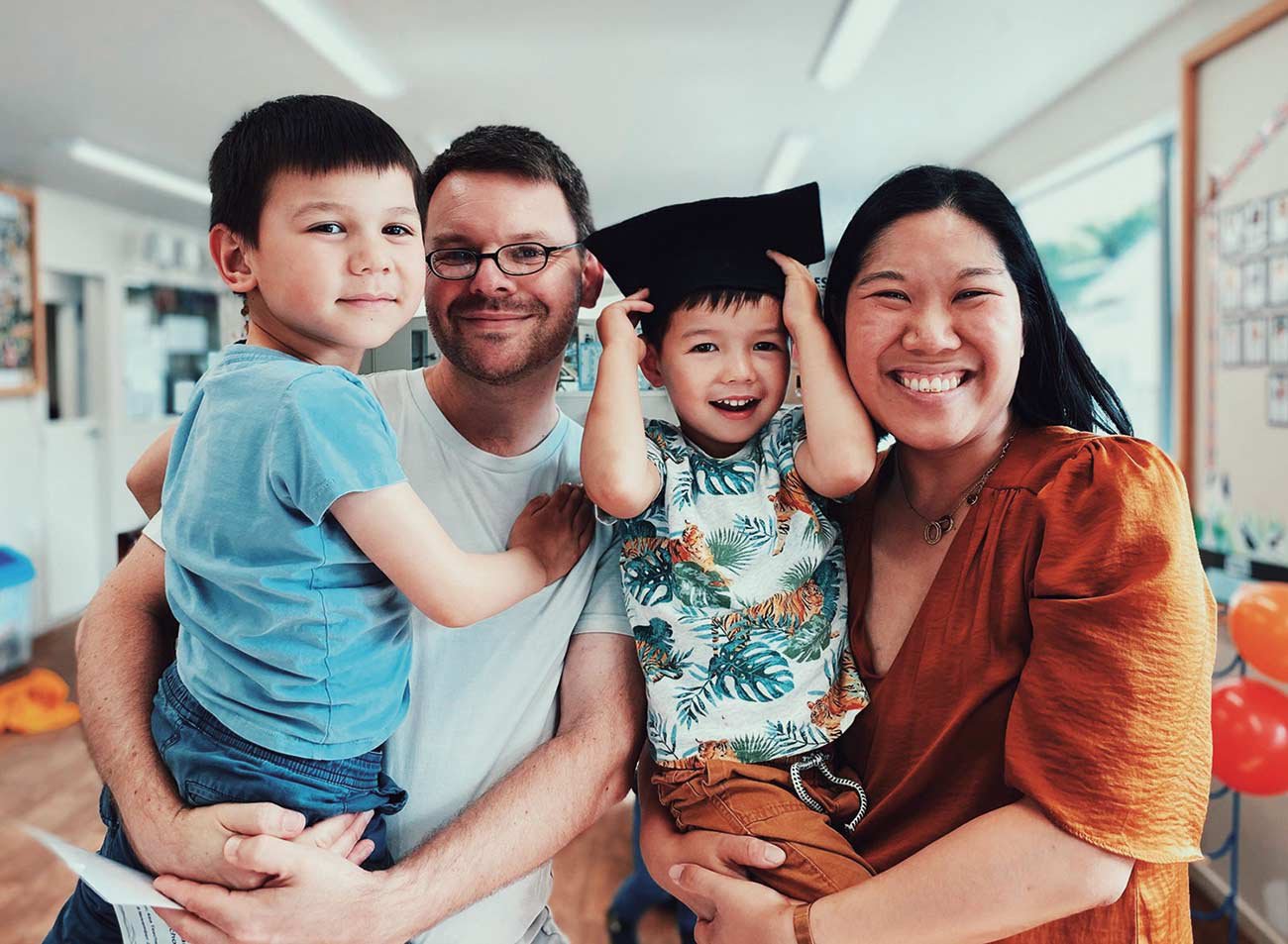
Jin and husband Matheson with their children Chester and Toby
Driving better outcomes for tamariki
Jin began her doctoral research in 2013, driven by “a deep passion for how we can get better outcomes for children’s health and development”.
“My research focus is largely on the idea that children’s development is shaped by their whānau relationships and by the sort of society they’re in, like where they grew up and what the circumstances were.
“I’ve found in my research that these inequities arise in the first thousand days of a child’s life, and by the age of two, gaps in kids' health and development – between advantaged kids and not so advantaged kids – are already emerging.”
Her research showed Māori and Pasifika children do well in the first year of life across multiple areas, including early social, emotional and language skills as well as motor skills.
But by the time they enter school, Jin believes we can see the “long arm of colonisation appear”.
“These kids are at greater risk of falling behind their peers educationally. Their progress is often affected by family poverty, overcrowding and other disadvantages. My research is about understanding the impact of these factors and trying to find a way to de-cluster the disadvantage.”
Investing in childhood years
Ask Jin if there was a lightbulb moment when she decided to pursue this path and she doesn’t pause for breath.
“One night, I was working the late shift at Middlemore Hospital and a young Cambodian girl was brought in by her father with a virus and wheezing badly. An uncle was translating for her father, and when I asked where her mother was, they said she was working at a factory packing chickens.”
Later, when Jin was writing her notes, she couldn’t stop thinking about the many cards her young patient had stacked against her.
“There were the underlying issues of poverty and housing, her parents working long shifts for low pay and the language barrier. She was looking at a future of worse health and social outcomes.”
It was, recalls Jin, the match that lit a fire under her, looking at how we could reduce the disadvantages facing some Kiwi kids.
“It’s a real motivator for society to invest heavily in children and their families in those early childhood years, to give families the resources they need to counter those disadvantages.”
Informing her research is the Growing Up in New Zealand study, Aotearoa’s largest child cohort study, which contains rich data from birth to the present day of thousands of children who are now 12-year-olds. “I’ve used the data to try to map out children’s developmental trajectories and to see to what extent disadvantage and advantage affect those trajectories.”
In an ideal world, Jin would have finished her doctorate by now, but a heavy work schedule and a global pandemic delayed it.
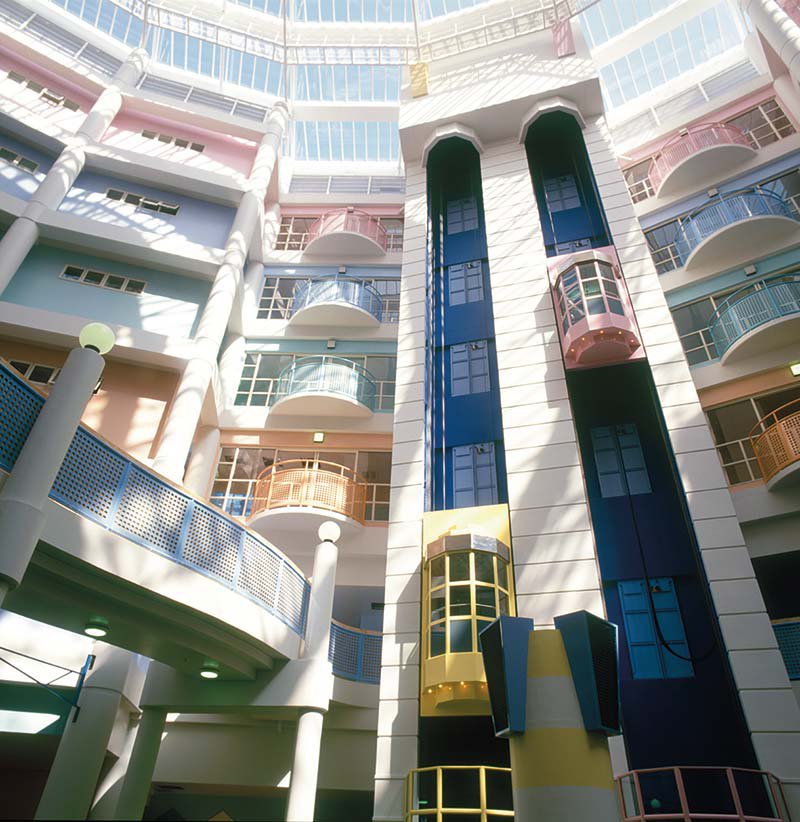
Above / Auckland-based MAS Member Jin spends two days a week as consultant developmental paediatrician at Starship Children's Hospital
Auckland-based MAS Member Jin spends two days a week as consultant developmental paediatrician at Starship Children's Hospital
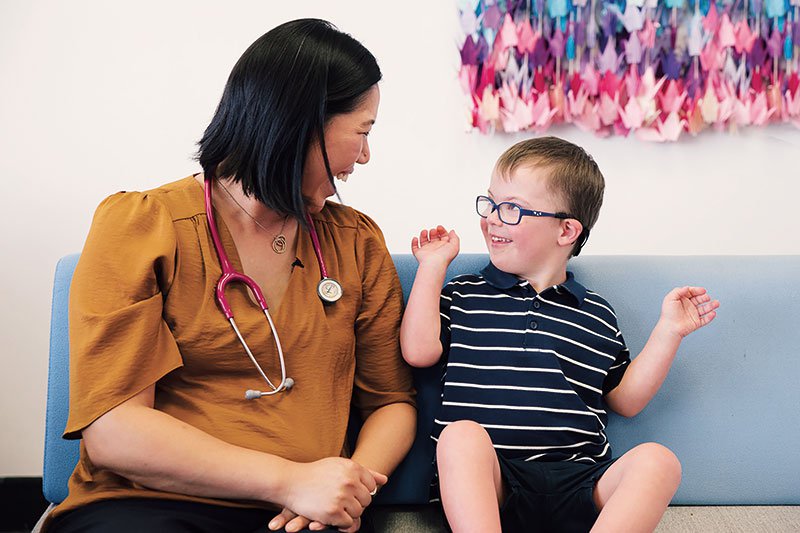
Credit: Starship Foundation
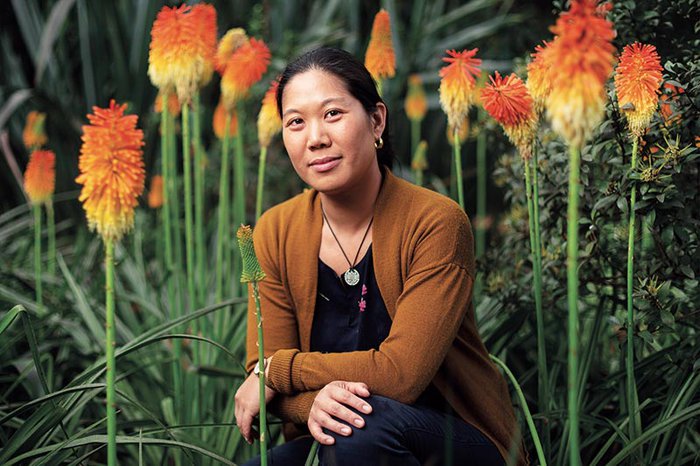
Top / Credit: Starship Foundation
Bottom / Over the last two years, she's also been a public cheerleader for COVID-19 vaccines, including for children. Credit: University of Auckland
Over the last two years, she's also been a public cheerleader for COVID-19 vaccines, including for children. Credit: University of Auckland
Becoming a spokesperson
Over the last two years, she’s also been a public cheerleader for COVID-19 vaccines, including for children.
“Children are the least at-risk subgroup for COVID but they can still suffer some of the wider impacts of the pandemic such as poverty if their parents’ or caregivers’ incomes take a knock, if someone in their whānau is unwell or if they miss school because of whānau illness. Vaccinating children and their whānau is the best way to protect them.”
This is how Jin became a media spokesperson helping Kiwis make sense of the pandemic. “As physicians, a large part of our clinical practice is to communicate to the patient sitting opposite us what’s going on, why it might be beneficial to do this or that and the possible outcomes. Communicating with the general public about COVID was an extension of that.”
Despite New Zealand’s recent move to the orange traffic light setting, Jin is still a strong believer in wearing masks, particularly in schools.
“I know there’s a lot of weariness around COVID, but New Zealand has done very well and avoided hospitals being overwhelmed. I’d strongly recommend students and staff wear masks at school because wearing masks helps to reduce the risk for everyone, especially the more vulnerable. Once we get through winter, we can reassess it.”
Medical roots
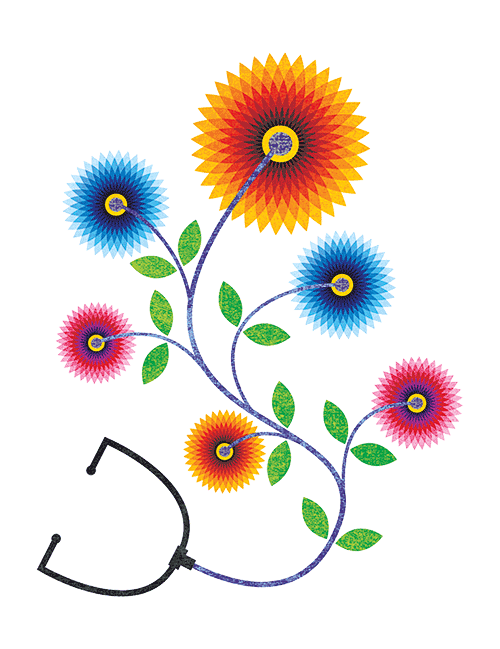 It would surprise no-one that Jin became a doctor because she’s from a family filled with them. Her mother is a GP, her father is a neuropathologist and her brother Laurence, who is four years older, is a rheumatologist, and they all live in Auckland. “That’s over 125 years of medical service to New Zealand from my family,” she says.
It would surprise no-one that Jin became a doctor because she’s from a family filled with them. Her mother is a GP, her father is a neuropathologist and her brother Laurence, who is four years older, is a rheumatologist, and they all live in Auckland. “That’s over 125 years of medical service to New Zealand from my family,” she says.
In fact, Jin’s career choice was imprinted on her from age five when one of her parents’ friends asked her what she wanted to be and she said, “A doctor like my Mum.”
Yet there was never any pressure to join the family firm. “Dad said to me ‘you can do anything you want, I know you’ll be the best you can be at whatever it is’. But being a doctor was a good fit because I’m very curious and have always been interested in helping others.”
Although she considered surgery as her speciality, after her first paediatric rotation at Middlemore Hospital, Jin was hooked.
“What drew me to paediatrics was the wonder of children’s development. Children develop, for the most part, in an almost magical way. As a parent myself, it’s such a delight.”
From there it was a short step into community and developmental paediatrics, a subspecialty that looks at how children are embedded in their environments and the way social systems and relationships influence the development and health of children.
Ask Jin if she’d encourage her sons to follow in the family’s medical legacy and she laughs.
“Toby has already told his teacher he wants to be a doctor like his Mum, which sounds familiar!”
Know someone who might enjoy this?
Read this next
-
March 2021
Helping Kiwi babies thrive
-
July 2021
Taking care of teddy
-
November 2021
Force of Nature
Professional life
See all-
March 2021
Made for today a century ago
-
March 2021
The great brain gain
-
March 2021
A hectic, horrific working holiday
-
March 2021
Smooth sailing for Southern Spars
